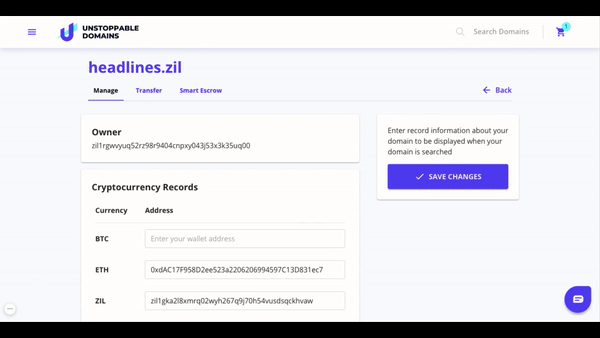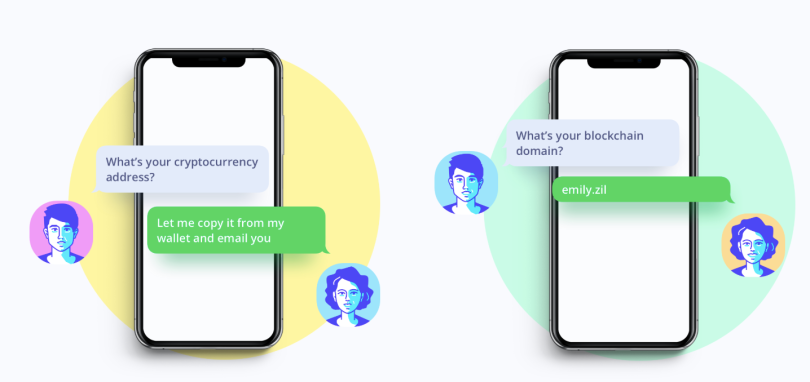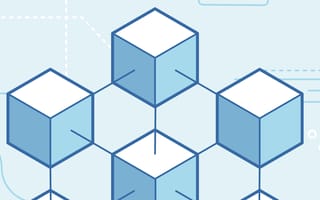As the coronavirus outbreak continues to spread, many Chinese mainlanders have limited ways to access information about what’s going on. Online censorship in China is common, but the government’s censoring technology has become so advanced, they’re able to block information about one of the biggest news events in the world, happening in their own country.
When it comes to censoring the internet, China isn’t the only culprit. Cuba, Iran, Syria and many more regularly block online information within their respective countries. It’s possible to use virtual private networks (VPNs) to circumvent blocked websites, but local governments often have the power to shut down VPNs if they choose, making them an imperfect solution to internet censorship.
Another solution is to build a website using a decentralized domain that lives on the blockchain.
Most people associate the blockchain with cryptocurrencies like Bitcoin and Ripple, but the technology has many more capabilities. There are decentralized messaging services, marketplaces and, importantly, decentralized domain names, which cannot be censored or taken down completely.
A number of decentralized domain registrars have launched in the past five years, helping disseminate blockchain websites and fight censorship. One such startup is San Francisco-based Unstoppable Domains, whose founders Brad Kam and Matt Gould say they are committed to preserving free speech and building a censorship-resistant internet through decentralized domains.
What is a decentralized domain?
Centralized domain names are the old-school domains of the internet. Extensions like .com, .net, .biz and hundreds more are what the majority of businesses and establishments use in their web address. They’re controlled by the Internet Corporation for Assigned Names and Numbers and purchased through a domain registrar like GoDaddy or Bluehost. The content is then hosted by a service like Amazon Web Services.
“Given current global trends in both business and government, it’s quite rational to want an alternative to relying on the benevolence of a large organization of significant power.”
Because these sites are only hosted in one location, they can easily be taken down if, for example, a government authority believes the content violates a law or regulation. Over a one-year period from 2018 to 2019, the U.S. Immigration and Customs Enforcement agency, along with Homeland Security, Europol, Interpol and several police agencies, seized 30,500 domain names in 20 different countries that were selling pirated movies and TV shows, counterfeit apparel and pharmaceuticals.
But in countries with an authoritarian government, website takedowns are much more common and the content being censored goes beyond the selling of illegal products. Often, it’s news coverage the government doesn’t want the public to access, like information about the coronavirus or the Hong Kong protests in China.
Decentralized domains, on the other hand, including extensions like .crypto, .eth, .bit and more, are stored in many different places, making them virtually impossible to be taken down or censored.
Blockchain domains are valuable because they remove the need to trust a centralized authority like ICANN. “Given current global trends in both business and government,” according to Will Martino, CEO of the blockchain startup Kadena, “it’s quite rational to want an alternative to relying on the benevolence of a large organization of significant power.”
This is the idea behind Unstoppable Domains, which can be used for simple tasks, such as paying someone using crypto so you don’t need their address or phone number. “But the bigger use case is to build a website that is censorship-resistant,” said Kam, who is also head of business development for the company.

Building a Blockchain Domain Company
Unstoppable Domains was born of Kam’s desire to build something at the intersection of tech and policy. He studied politics before he met co-founder Gould while working at his first startup, Talkable, a SaaS marketing platform.
“I always knew I would start working on something related to free speech,” he said.
The 2016 election was the catalyst that got Unstoppable Domains off the ground. Kam became increasingly aware that the current systems in place were leading to a rise in online censorship, which was actively harming people. “The rise of authoritarianism leads to data censorship,” Kam said.
Unstoppable Domains is built on the Ethereum blockchain, which aims to be a world computer of sorts. Rather than use the existing client-server model that apps like Google Drive operate on, Ethereum uses “nodes,” which are run by thousands of volunteers all over the world who store the information.
Once the technology behind Ethereum became more advanced, Kam had the platform he needed to create a business around decentralized domains.

The Decentralized Web
But could the adaption of decentralized domains lead to a decentralized internet?
“The internet will always have some centralization until the communications layer [i.e. global fiber networks] becomes decentralized,” Martino said.
The communications layer of the internet relies heavily on industry at the moment, so full decentralization doesn’t fit with the current internet infrastructure. A truly decentralized internet would make it impossible to stop any packet of information from getting to anyone else. This would require a meshnet of billions of wireless devices so that peer-to-peer connections could span across oceans.
“At the software level, this is doable,” Martino said. “However, at the hardware level, we would need a massive innovation in wireless communication technology.”
In other words, creating a truly decentralized internet, one in which no content could ever be fully blocked or censored, is a long way from reality — if it’s possible at all.
“The internet will always have some centralization until the communications layer [i.e. global fiber networks] becomes decentralized.”
Decentralized domains doesn’t mean a fully decentralized internet is in our future, but when it comes to decreasing censorship, “they can't hurt either,” Martino said.
A More Encrypted Internet
Today, the more realistic version of a decentralized internet is an encrypted one that is unaffected by the current political climate. “Only a war will cut off packet filtering between regions, otherwise, encrypted packets are allowed through,” Martino said.
With an encrypted internet, the end-user is responsible for security instead of service providers — ones that have historically shown little care about the security of consumers, Martino noted.
As long as a decentralized internet is in the realm of science fiction, an encrypted internet would be the next step forward, Martino said. “And that would be a great thing for the world to make real.”




